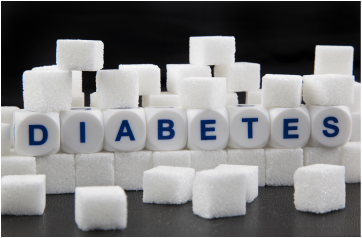Back to General Health
Probiotics a Diabetes Cure?

06/2016
By Jerry Shaw
Is a cure for diabetes just around the corner thanks to probiotics? Studies on the good bacteria have revealed exciting results that hold promise for the more than 29 million Americans who have diabetes.
Probiotics have long been used to treat a variety of stomach ailments because they stimulate growth of beneficial microorganisms in the digestive tract. They are found in foods such as yogurt and sauerkraut and also can also be taken in supplement form. Now, scientists are learning these “friendly” bacteria could also improve insulin levels for diabetics.
An actual diabetes cure is not yet here, but probiotics have been shown to influence blood glucose, or sugar, levels.
Researchers at Cornell University in Ithaca, New York, reported in 2015 that they were able to reduce blood glucose levels of diabetic rats by administering the probiotic Lactobacillus, according to Medical News Today. The probiotics apparently encouraged intestinal cells to secrete insulin and regulate the blood sugar levels.
The researchers indicated it could be possible in the future for diabetics to take a daily probiotic pill to control their condition.
In a 2009 study, researchers in Malaysia examined several international studies and concluded probiotics could help prevent onset diabetes and high blood pressure, according to Natural News.
Another study involving 25 elderly volunteers found that consuming low-fat milk containing probiotics twice a day reduced the onset of inflammatory induced diabetes, researchers reported in the September 2009 issue of the International Journal of Molecular Sciences. The researchers also reported on another study on probiotics that reduced glucose levels in diabetic mice.
Research published in the JAMA Pediatrics journal in January 2016 found "early probiotic supplementation may reduce the risk of islet autoimmunity in children at the highest genetic risk" for Type 1 diabetes by boosting the intestinal and immune systems. In Type 1 diabetes, the body does not produce insulin.
Type 2 diabetes, in which the body does not use insulin properly, might be associated with changes in intestinal microorganisms, according to a report in PLOS One, a scientific research journal. The study indicates a link between metabolic diseases such as diabetes and bacteria in the gut.
Diabetes patients interested in trying probiotics for improved health should consult their doctors.
http://www.newsmax.com/FastFeatures/probiotics-diabetes-cure-research/2016/06/15/id/734082/
By Jerry Shaw
Is a cure for diabetes just around the corner thanks to probiotics? Studies on the good bacteria have revealed exciting results that hold promise for the more than 29 million Americans who have diabetes.
Probiotics have long been used to treat a variety of stomach ailments because they stimulate growth of beneficial microorganisms in the digestive tract. They are found in foods such as yogurt and sauerkraut and also can also be taken in supplement form. Now, scientists are learning these “friendly” bacteria could also improve insulin levels for diabetics.
An actual diabetes cure is not yet here, but probiotics have been shown to influence blood glucose, or sugar, levels.
Researchers at Cornell University in Ithaca, New York, reported in 2015 that they were able to reduce blood glucose levels of diabetic rats by administering the probiotic Lactobacillus, according to Medical News Today. The probiotics apparently encouraged intestinal cells to secrete insulin and regulate the blood sugar levels.
The researchers indicated it could be possible in the future for diabetics to take a daily probiotic pill to control their condition.
In a 2009 study, researchers in Malaysia examined several international studies and concluded probiotics could help prevent onset diabetes and high blood pressure, according to Natural News.
Another study involving 25 elderly volunteers found that consuming low-fat milk containing probiotics twice a day reduced the onset of inflammatory induced diabetes, researchers reported in the September 2009 issue of the International Journal of Molecular Sciences. The researchers also reported on another study on probiotics that reduced glucose levels in diabetic mice.
Research published in the JAMA Pediatrics journal in January 2016 found "early probiotic supplementation may reduce the risk of islet autoimmunity in children at the highest genetic risk" for Type 1 diabetes by boosting the intestinal and immune systems. In Type 1 diabetes, the body does not produce insulin.
Type 2 diabetes, in which the body does not use insulin properly, might be associated with changes in intestinal microorganisms, according to a report in PLOS One, a scientific research journal. The study indicates a link between metabolic diseases such as diabetes and bacteria in the gut.
Diabetes patients interested in trying probiotics for improved health should consult their doctors.
http://www.newsmax.com/FastFeatures/probiotics-diabetes-cure-research/2016/06/15/id/734082/

